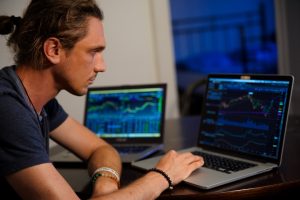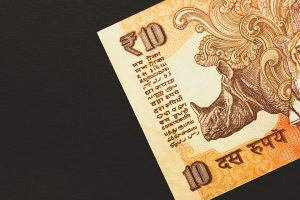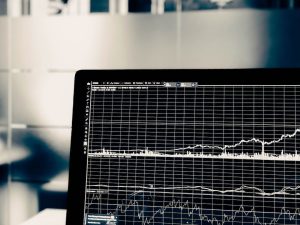Retail traders in forex are individuals who trade in the foreign exchange market for their own account, rather than on behalf of an institution or company. These traders are often referred to as “retail forex traders” or simply “retail traders.”
Forex trading is the act of buying or selling currencies in order to make a profit. The foreign exchange market is the largest financial market in the world, with an estimated daily trading volume of over $5 trillion. It is a decentralized market, meaning that there is no central exchange where all trades take place. Instead, traders can buy and sell currencies through a network of banks, brokers, and other financial institutions.
Retail traders in forex typically trade through online forex brokers. These brokers provide traders with access to the forex market and offer a range of trading platforms, tools, and resources to help them make informed trading decisions. Retail traders can trade a wide range of currency pairs, including major pairs such as EUR/USD, GBP/USD, and USD/JPY, as well as minor and exotic pairs.
One of the main advantages of forex trading for retail traders is the high degree of leverage that is available. Leverage allows traders to control a large amount of currency with a relatively small amount of capital. For example, if a trader has a leverage ratio of 100:1, they can control $100,000 worth of currency with just $1,000 in capital. This can amplify profits, but it can also increase losses, so it is important for traders to use leverage wisely and manage their risk carefully.
Another advantage of forex trading for retail traders is the flexibility and accessibility of the market. The forex market is open 24 hours a day, 5 days a week, which means that traders can trade whenever they want, from anywhere in the world. This makes it a popular choice for traders who want to trade part-time or who have other commitments during normal trading hours.
However, it is important to note that forex trading is also a high-risk activity. The market is volatile and unpredictable, and prices can fluctuate rapidly in response to a range of economic, political, and other factors. Retail traders need to be prepared to accept the risks and losses that come with trading, and should have a solid understanding of the market and its dynamics before they start trading.
In addition to traditional forex trading, there are also a number of other ways that retail traders can participate in the forex market. For example, some brokers offer forex options, which allow traders to buy or sell currency at a set price on a specific date in the future. There are also forex futures, which are contracts to buy or sell a specific currency at a set price and date in the future.
Overall, retail traders in forex play an important role in the market. They provide liquidity and contribute to price discovery, and they can also benefit from the market’s high degree of leverage and flexibility. However, they also need to be aware of the risks and challenges of trading in such a volatile and unpredictable market, and should take steps to manage their risk and protect their capital.






